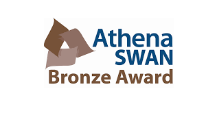Athena SWAN
Identify advancement of gender equality: representation, progression and success for all.
The Athena SWAN Charter was established in 2005 to encourage and recognise commitment to advancing the careers of women in science, technology, engineering, maths and medicine (STEMM) employment in higher education and research. It was expanded in May 2015 to include the Arts, Humanities and Social Sciences with a broadened remit to include consideration of professional and support roles, of trans staff and students and in recognising gender equality more widely.
For further information on Athena SWAN within Health Studies or for any comments,
Please contact hs-athena-swan-at@lists.brad.ac.uk

Advance HE's Athena SWAN 10 Principles
The Athena SWAN Charter is based on ten key principles. By being part of Athena SWAN, institutions are committing to a progressive charter; adopting these principles within their policies, practices, action plans and culture.
1. We acknowledge that academia cannot reach its full potential unless it can benefit from the talents of all.
2. We commit to advancing gender equality in academia, in particular, addressing the loss of women across the career pipeline and the absence of women from senior academic, professional and support roles.
3. We commit to addressing unequal gender representation across academic disciplines and professional and support functions. In this we recognise disciplinary differences including:
- The relative underrepresentation of women in senior roles in arts, humanities, social sciences, business and law (AHSSBL)
- The particularly high loss rate of women in science, technology, engineering, mathematics and medicine (STEMM)
4. We commit to tackling the gender pay gap.
5. We commit to removing the obstacles faced by women, in particular, at major points of career development and progression including the transition from PhD into a sustainable academic career.
6. We commit to addressing the negative consequences of using short-term contracts for the retention and progression of staff in academia, particularly women.
7. We commit to tackling the discriminatory treatment often experienced by trans people.
8. We acknowledge that advancing gender equality demands commitment and action from all levels of the organisation and in particular active leadership from those in senior roles.
9. We commit to making and mainstreaming sustainable structural and cultural changes to advance gender equality, recognising that initiatives and actions that support individuals alone will not sufficiently advance equality.
10. All individuals have identities shaped by several different factors. We commit to considering the intersection of gender and other factors wherever possible.
